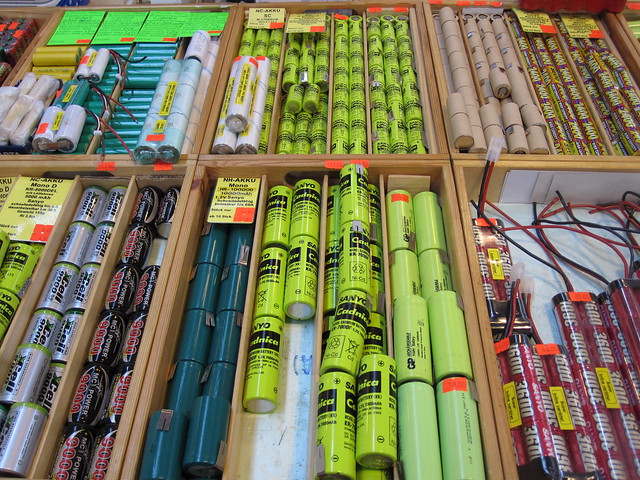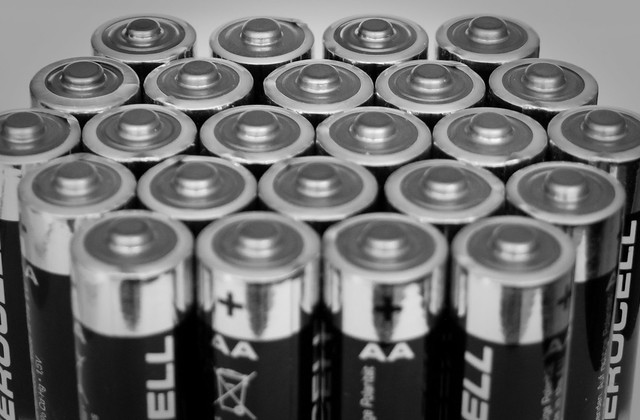Discussion on Flow battery vs. Lithium-ion
Aug 05, 2019 Pageview:1226
As the industry of energy storage starts to see remarkable growth in the markets all over the globe, all eyes are on the rechargeable lithium-ion batteries. In fact, these types of rechargeable batteries are now used in various applications, for instance, portable electronic devices and electric vehicles. All credit for the popularity of lithium-ion batteries goes to their high energy density, low self-discharge, and no memory effect. But, battery manufacturers are exploring other batteries too.
According to various researches, it is found that flow batteries are going to have strong advantages over rechargeable lithium-ion batteries. In fact, numerous large-scale batteries are already being designed using this particular technology.
However, the first thing is the first…what is flow battery? It is also known as redox flow battery and it is the type of electrochemical cell where chemical energy is given by dissolving two chemical components in liquids that contain within the system and further, separated by a membrane.
A flow battery may be utilized like a flue cell in which there is extraction of spent fuel and addition of the new fuel to the system. With the increased usage of flow batteries in various applications, there is always an ongoing debate on whether flow batteries can complete against lithium-ion batteries. If you’re also curious to know about it, here you will find your answer.
Can flow batteries compete against lithium-ion battery?
Well, so many claims are found on flow batteries - lower degradation, enhanced safety, a better option for long-duration applications and much more. So, let’s give a closure look at every claim and find out whether flow batteries are better than lithium-ion batteries.
1. Flow batteries - Low degradation
There are so many flow batteries manufacturers who claim that throughput-depended degradation of these batteries is quite low. Thus, it provides flow batteries an advantage over lithium-ion batteries that degrade quite fast.
2. Flow batteries - Time-depended degradation is near-zero
There are some flow battery manufacturers who have made the stack to drain the electrolyte automatically during idle times, remarkably minimizing time-depended degradation linked with unnecessary chemical reactions between electrodes and electrolytes. However, every flow battery doesn’t have this feature.
3. Flow batteries - Lower fire risk
Flow batteries are known to have lower fire risk as compared to lithium-ion batteries. It might because non-flammable electrolyte of flow batteries is comprised mainly of water. Thus, this will probably prevent catastrophic failures that are noticed amongst Li-ion batteries.
4. Flow batteries - Simple controls and monitoring
Well, it is true that no stack/cell balancing needs are required in redox flow batteries as there are common negative and positive electrolytes between all stacks/cells at a collective SoC. thus, it means that no control and monitoring is required to balance the SoC at the stack and cell level.
These main advantages of flow batteries are found over lithium-ion batteries. However, flow battery is far behind the lithium-ion battery in market penetration and variety of markets. In other words, Li-ion batteries dominate the industry of energy storage and have higher market share and are equipped into a wider range of applications, especially commercial ones.
No doubt, market opportunities may favor flow batteries advantages. However, lithium-ion batteries will be competing to inflate to future applications too.
Is Flow Battery Less Bankable Than Lithium-Ion Battery?
Yes, Flow battery is less bankable than lithium-ion battery at present. But there are manufacturers who believe that this will change in the upcoming years. Everyone agrees with the fact that the Lithium-ion batteries full potential haven’t been recognized by anyone yet. So, if somehow, anyone is likely to fathom the future possibility, Lithium-ion batteries have a larger potential than any other type.
So, even though the manufacturers make it possible to revolutionize the flow batteries concepts, Lithium-ion batteries will stay in the competition forever.
How Does Flow Battery And Lithium-Ion Battery Work?
The Flow battery comprises an electrochemical conversion device. The basic process involves oxidation of certain elements commonly metals to store and discharge the energy. There are three categories of Flow battery: Redox flow battery, hybrid flow battery, and membrane-less flow battery. Among these types, the Redox flow battery is the most common one.
Flow batteries have a liquid electrolyte which is clear from its name. The liquid flows through the battery system and has a unique mechanism for every category. The redox battery uses the liquid for oxidation-reduction reactions. The hybrid flow battery has a liquid-solid transition. And the membrane-less batteries have no electrolyte separation layer. The most common elements that are used for Flow batteries include Vanadium, and the less popular ones are Zinc-bromine, iron-chromium, polysulfide-bromine, and iron-iron.
Unlike the Li-ion batteries, the flow batteries store the liquid electrolyte in the external tanks. The energy-carrying electrolyte is separated from the power-producing stacks; hence flow batteries have the power and energy decoupled. When you want to make sure that your battery last longer, you have to buy a bigger gas tank and bigger engine for Lithium-ion batteries. But this is not a requirement for the Flow batteries as they only need a bigger gas tank.
A flow battery is capable of recharging a discharged electrolyte on its own. In the Lithium-ion batteries, the electrolyte charge and discharge happens when the flow happens through all cells and stacks simultaneously. As a result, there is one common stage of charge instead of having a number of SoCs for each and every individual cell. This means that cell and stack balancing is not required by the flow batteries.
Final Verdict
As a power battery, the Lithium-ion battery is amazing. But as an energy battery, Flow battery wins in some areas. That’s why there is an ongoing debate about certain attributes of the batteries to make the best choice for future technology. As the energy storage industry is changing at a faster pace, the world has its eyes on the Lithium-ion batteries. There is no doubt that flow batteries have some strong advantages over them and some large scale manufacturers are already using them. But Lithium-ion is still in the competition and acquires 95% of the United States market.
Lithium-ion batteries have superior performance and significant price degression along with other major benefits. That’s why they are dominating the world market. To compete with the Lithium-ion batteries, Flow batteries have to work a long way.
- Prev Article: How Much You Know About Lithium Battery Shelf Life
- Next Article: You should know more about 16340 battery vs. 18650
Leave Message
Hottest Categories
-
Hottest Industry News
-
Latest Industry News











